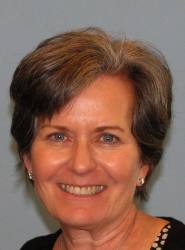Homestead Tax Option Struck Down After Much Deliberation
- Thursday, 06 March 2014 11:55
- Last Updated: Monday, 10 March 2014 14:45
- Published: Thursday, 06 March 2014 11:55
- Ezra Lerner
- Hits: 10301
 Following months of briefings, meeting and hearings, the Mayor and Board of Trustees of Scarsdale voted unanimously 7-0, on March 4, 2014, against the adoption of the Homestead Tax Option. The measure was under consideration as part of the Village-wide tax revaluation process that will re-asses the way the tax burden is distributed across Scarsdale. If passed it would have changed the methodology for assessing condominiums, so that condominiums would be assessed on their market value rather than on their potential rental income, which is the current methodology for coops.
Following months of briefings, meeting and hearings, the Mayor and Board of Trustees of Scarsdale voted unanimously 7-0, on March 4, 2014, against the adoption of the Homestead Tax Option. The measure was under consideration as part of the Village-wide tax revaluation process that will re-asses the way the tax burden is distributed across Scarsdale. If passed it would have changed the methodology for assessing condominiums, so that condominiums would be assessed on their market value rather than on their potential rental income, which is the current methodology for coops.
Sounding more like judges than trustees, several of the board members spoke eloquently on the reasoning behind their votes, each offering a unique perspective on this perplexing issue. Many cited the undue tax burden that would be placed on the condo owners of Christie Place in exchange for a minimal benefit to owners of Scarsdale single family homes. Since the intent of the Homestead Tax Option legislation is to rebalance the tax burden between commercial and residential properties following a revaluation, some felt it was wrong to apply this option to reclassify a small number of condominiums. Trustees also believed that these condo-owners had no previous knowledge that their taxes could be tripled just a few years after they purchased their units, making it a bait and switch situation. Plus Homestead would create a new disparity between the valuation of condos and coops, and there is a lack of sales history data to properly assess the condominiums at fair market value.
Here are excerpts from their statements: Trustee Stacey Brodsky said, "As everyone who has followed this debate knows, the adoption of Homestead will not eliminate disparities since coops will continue to be taxed using the income based valuation method whether or not the Homestead provision is enacted. Because the Homestead law allows only the possibility of revaluing condos using market value, it creates a disparity in the real estate valuation method and consequent real estate tax treatment of condos versus coops." ..."With the Homestead Option, we would be proposing to increase property taxes on the condos some 100 to 200% based upon assumptions about market conditions that we have not previously had and have no experience with in Scarsdale. My concerns about the valuation process are underscored by the age restrictions limiting Christie Place condominium ownership, which affect the universe of buyers eligible to purchase a unit.... We, the village board, simply lack the power to treat all owners of property the same way; therefore, to my way of thinking, the analysis to support the Homestead option must go deeper than broad assertions of fairness."
Trustee Stacey Brodsky said, "As everyone who has followed this debate knows, the adoption of Homestead will not eliminate disparities since coops will continue to be taxed using the income based valuation method whether or not the Homestead provision is enacted. Because the Homestead law allows only the possibility of revaluing condos using market value, it creates a disparity in the real estate valuation method and consequent real estate tax treatment of condos versus coops." ..."With the Homestead Option, we would be proposing to increase property taxes on the condos some 100 to 200% based upon assumptions about market conditions that we have not previously had and have no experience with in Scarsdale. My concerns about the valuation process are underscored by the age restrictions limiting Christie Place condominium ownership, which affect the universe of buyers eligible to purchase a unit.... We, the village board, simply lack the power to treat all owners of property the same way; therefore, to my way of thinking, the analysis to support the Homestead option must go deeper than broad assertions of fairness."
Calling this one of the most difficult decisions she has had to make on four year on the Village Board, Trustee Kay  Eisenman said, "Fairness in applying the law is not always equivalent to fairness to individual persons. In this case the law evenly applied to all would not impact all equally. Condo owners would share an unequal burden of economic change and endure a great financial burden when these rules are implemented." She then answered those who argued that diligent condo buys should have known that a tax increase was possible, saying, "These owners, unlike home owners, had no inkling that reval could so drastically change their lives. Frankly I don't know if anyone was aware of this, or saw it coming, because it was never part of the discussion about reval, which I recall was thorough and extensive. ... This seems to me inherently unfair and a game changer for those owners. ... My vote was cast because I could not in good conscience decide to do something that, while permissible under the law, feels morally corrupt and a poke in the eye to people who had every right to expect that they purchased their homes in an open and fair process."
Eisenman said, "Fairness in applying the law is not always equivalent to fairness to individual persons. In this case the law evenly applied to all would not impact all equally. Condo owners would share an unequal burden of economic change and endure a great financial burden when these rules are implemented." She then answered those who argued that diligent condo buys should have known that a tax increase was possible, saying, "These owners, unlike home owners, had no inkling that reval could so drastically change their lives. Frankly I don't know if anyone was aware of this, or saw it coming, because it was never part of the discussion about reval, which I recall was thorough and extensive. ... This seems to me inherently unfair and a game changer for those owners. ... My vote was cast because I could not in good conscience decide to do something that, while permissible under the law, feels morally corrupt and a poke in the eye to people who had every right to expect that they purchased their homes in an open and fair process." Trustee Jon Mark discussed the shift in the burden that would be caused by the adoption of Homestead as well as the intent of the Homestead Tax Option, saying, "In my view making a fundamental change in the methodology used to assess condominiums that produces a significant tax dollar burden on 47 condominium units and an insignificant tax dollar benefit for approximately 5,300 residential properties is not a fair result. It is not comparable to the re-allocation of tax burden among residential properties that is expected to occur from the Village-wide revaluation where no change in methodology is involved.... Since we are not considering adopting the Homestead Tax Option for its primary purpose – to re-establish pre-revaluation property tax allocations among residential and other property classes, it would seem that adopting it solely to change the methodology for valuing condominiums has a punitive quality that also strikes me as unfair."
Trustee Jon Mark discussed the shift in the burden that would be caused by the adoption of Homestead as well as the intent of the Homestead Tax Option, saying, "In my view making a fundamental change in the methodology used to assess condominiums that produces a significant tax dollar burden on 47 condominium units and an insignificant tax dollar benefit for approximately 5,300 residential properties is not a fair result. It is not comparable to the re-allocation of tax burden among residential properties that is expected to occur from the Village-wide revaluation where no change in methodology is involved.... Since we are not considering adopting the Homestead Tax Option for its primary purpose – to re-establish pre-revaluation property tax allocations among residential and other property classes, it would seem that adopting it solely to change the methodology for valuing condominiums has a punitive quality that also strikes me as unfair."
Trustee David Lee echoed some of the same concerns, saying, "We all understand that the whole point of the reval was to put all of the residences in Scarsdale on an equal footing....So it is quite troubling to consider that in the absence of our adopting the Homestead Tax Option condominium owners at Christie Place will benefit from a method of calculation that undercuts the equal footing concept.... Yet, what ultimately governs my vote is that I believe there is a principled reason for singling out the residents of Christie Place. In my view the residents of Christie Place had a reasonable expectation that their property taxes were correctly calculated and would not double or triple in size within a very short number of years. They could justifiably believe that the newly computed assessments on their property were reasonably accurate and not subject to huge swings in the near future....I distinguish their situation from that of a buyer of an old home with a low assessment who is now subject to a dramatic swing higher in taxes. That buyer either knew or with only a modest amount of discussion on the subject would have known he or she was simply enjoying the good fortune of an outdated assessment."
"I am not willing to say that the Christie Place residents should have done their homework better to discover the existence of the Homestead Tax Option...Nor am I willing to say that if they have a complaint it is with the developer to whom they overpaid for their apartment or it is with their real estate attorney who failed to advise them of this possibility. ... The adopted plan would be harshly inequitable.... An exception must be made in this case to prevent an injustice."
Trustee William Stern noted that while he did not agree that there would be a decrease in the value of the Christie Place condominiums, he grouped condominiums and coops as, "Fungible housing," which should not be treated differently by raising the tax rates on one and not the other. Mayor Robert Steves had the final word before the vote, again citing the, "disproportionate impact," the taxes would have on a small part of the community. He went on to say that it is important that the Board of Trustees is, "Careful not to start setting different demographics against each other." He made clear that he in no way felt any tax laws were created illegally, or used to foster backdoor or illegal dealings. In his interpretation of the re-evaluation, Mayor Steves said, "The law recognized circumstances to re-evaluate and gave the village the power to do that," going on to describe the methodology used in previous evaluations as consistent with the one used across the state.
Mayor Robert Steves had the final word before the vote, again citing the, "disproportionate impact," the taxes would have on a small part of the community. He went on to say that it is important that the Board of Trustees is, "Careful not to start setting different demographics against each other." He made clear that he in no way felt any tax laws were created illegally, or used to foster backdoor or illegal dealings. In his interpretation of the re-evaluation, Mayor Steves said, "The law recognized circumstances to re-evaluate and gave the village the power to do that," going on to describe the methodology used in previous evaluations as consistent with the one used across the state.
Advocates for Homestead continued to present arguments for its adoption. They touched upon the necessity for fairness in the tax code by citing the need to tax everyone at the same level. Robert Berg claimed that everyone deserved the, "Opportunity for equal protection under the law," Lambasting the tax option as, "Unfairly benefitting Christie Place residents since 2008," Mr. Berg also made a direct plea to the Board, not to let their sympathy for the plight of the Christie Place owners influence their decision.
Robert Selvaggio called for taxes to be "levied in an equitable way," saying, "we are all paying for the people who live in Christie Place. Selvaggio said, "I don't want to pay my friends taxes anymore than they want to pay my kids college tuitions." He continued saying, "We hate to see anyone's taxes rise," and called a vote against the Homestead Tax option as a, "Victory for crony capitalism."
Former Trustee Bob Harrison called for all condos past and present to be assessed at fair market value. With that said, he also noted that the yearly cost of a Christie Place condo should be taken into account when determining the increased tax rate, and that he thought, "the dollar value of condos will be maintained."
Linda Doucette-Ashman of the League of Women Voters f Scarsdale read sections of the consensus statement from the League which came out against Homestead. You can read the entire statement here:
Richard Gerwin, a Christie Place resident, cited the 116% tax increase and a potential decrease in retail value as compelling reasons to vote against the ballot measure. David Rosen, another Christie Place resident, explained his view that the arguments made in support of equal taxation had little to do with fairness, but were rather, "A cover for anti-development arguments," stemming from the fear that many condominiums would spring up due to lower tax rates.
As the lengthy debate came to a close, both the Mayor and Board of Trustee's acknowledged the gravity of the issue, and the time that was spent in order to reach their decision. With the motion voted down, the town avoided a, "Fundamental change for condo's," in the words of Trustee Jon Mark, and continued with the re-evaluation process.







